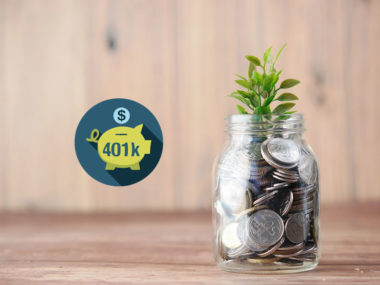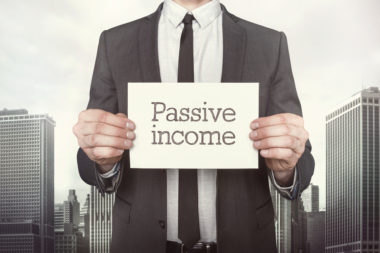You can easily identify when the economy is in a recession because you’ll see low interest rates, a volatile stock market, and other unpredictable economic conditions. If you’re planning to retire soon but a recession is in the works, you may think twice about taking the leap.
According to Harvard University’s Joint Center for Housing Studies (JCHS) 2016 State of the Nation’s Housing report, the number of seniors aged 65 and older who carry mortgage debt into retirement years increased while our economy recovered from the last recession. In 1995, only 22% of seniors carried mortgage debt into retirement but that number increased to 35% in 2007 and 41% in 2016.
A recession may not seem like the ideal time to retire based on the value of retirement investments alone. However, it’s important to understand all aspects of retiring during a recession before you conclude that you must push back your retirement age. Use this guide to learn more about aspects you should consider and how you can recession-proof your retirement savings plan.
Table of Contents
How Can a Recession Impact Your Retirement?
A recession negatively impacts several aspects of the economy and society. It’s important to review what may potentially be impacted by the next recession when deciding if you can afford to retire during this economic downturn.
The following are factors that have been impacted by past recessions and may see effects during the next recession:
- Jobs: Employers are affected by a recession and may need to make moves that negatively affect their employees, such as decreases in salaries or hours and job elimination. Elderly workers who lose their jobs before retirement age may find that this gap in employment delays their plan for retirement. They may need to work longer and retire later. The average retirement age in the U.S. increased from 59 in 2002 to 62 in 2014, possibly due to the 2008 financial crisis.
- Wealth: According to data from the Health and Retirement Study (HRS) through the Social Security Administration (SSA), retirement wealth for Americans aged 53 to 58 decreased by 2.8% during the Great Recession in 2008. When wealth decreases, workers looking to retire may be tempted to postpone retirement. The stock market and housing market experiences a downturn, which also negatively impacts workers’ potential retirement income sources. Decreased salaries and unemployment also make it hard for older workers to stay on track with their retirement plans.
- Health: Declining wealth can also lead to declining health for many people. Health insurance is expensive and if workers lose their jobs or are no longer offered inexpensive coverage, they may forgo important medical treatments. Long-term care facilities may also increase their prices since the cost of care increases during a recession, making it tough for retired workers to afford care. Physiological stress, morbidity, and other negative health effects increased during the 2008 Great Recession, possibly due to the economic pressures many felt in a declining market.
Looking Back at the 2008 Financial Crisis
The 2008 financial crisis affected retirement for many Americans. A declining housing market and stock market forced some workers to push back their retirement age while others dealt with unemployment before the age they planned to retire.
Retirement savings accounts lost value throughout the financial crisis, slowing the growth of many investments. This also led some workers to continue working past their planned retirement age or to retire with much less income than expected.
The Great Recession of 2008 caused many workers to assume it’s impossible to retire during a recession. While these issues are congruent with most recessions, there are ways to ensure your retirement plan can handle a recession while staying on track.
Is It Safe to Retire During a Recession?
It’s possible to retire during a recession but whether this is the right plan for you depends on several factors. Consider your current investment portfolio and how heavily it relies on market performance and other factors affected by the recession.
If you know you want to continue working part time or at a different job during retirement, you may be safer retiring during a recession. Additional income helps you to continue living comfortably throughout retirement. You’re not relying completely on your retirement investments to pay you back directly after you retire.
This gives the market time to recover before you need to pull money from your investments. If you continue working, you may also qualify to postpone receiving your Social Security benefits until past retirement age. When you do opt to receive these benefits, your monthly payments are higher.
A recession is also a good time to retire if you have extra cash you can use for real estate or stock investments. Since both markets are currently down, prices are low. Investments you make now will more than likely see growth in several years. If you can wait to make your money back, a recession is a great time to invest.
Financial Planning for a Recession: Protecting Your Retirement
If you suspect you’ll want to retire when the economy is experiencing a recession, it’s important to implement strategies that will protect your retirement plan now. By following these steps, you may be able to minimize the negative effects a recession has on your financial situation so you can follow through with your original plan for retirement.
Manage Your Debt to Avoid Carrying It Into Retirement
Be prepared to live on a tight budget during a recession and throughout your first few years of retirement if you retire in an economic downturn. Carrying debt with you into retirement makes it nearly impossible to live on a budget with a fixed income.
If you’re worried about a recession, aggressively pay off your debts now while you’re earning income. This allows you to use your retirement money for other expenses once you stop working. It also ensures your debt doesn’t continue to grow after you retire, forcing you to go back to work and earn an income to address it.
Make Strategic Retirement Investments
A diversified investment portfolio is one of the best ways to ensure a recession doesn’t completely wipe out your retirement plan. Your investment strategy should include various investment vehicles, such as a 401(k), annuities, and individual retirement accounts (IRAs). With several investment strategies, it’s easier to mitigate your losses and choose the vehicle that will provide the greatest profit when you retire.
Create an Emergency Fund
A recession makes the economy and your personal finances feel unpredictable so it’s important to be prepared for anything. With an emergency fund, you know you’ll be able to pay for unexpected expenses, including a home repair or medical bill. It also helps you stay afloat if your salary is cut at work or you lose your job.
With an emergency fund, you don’t need to rely on a loan or credit card to pay your bills. Not only will it keep you out of debt, an emergency fund also ensures you can still afford to contribute to your retirement investments without missing a beat. Contribute a small amount of your income each month until you have three to six months’ worth of income saved in an emergency fund.
A recession is a concerning time for all workers, especially if you’re planning to retire soon. However, it is possible to retire during a recession if you’ve saved for retirement using recession-proof strategies.
Image Source: https://depositphotos.com/





